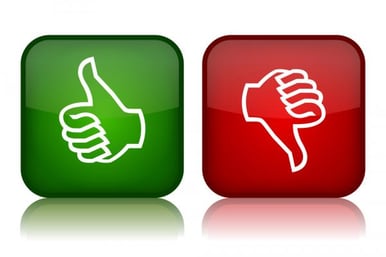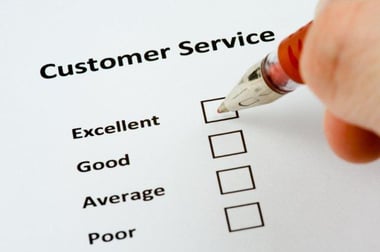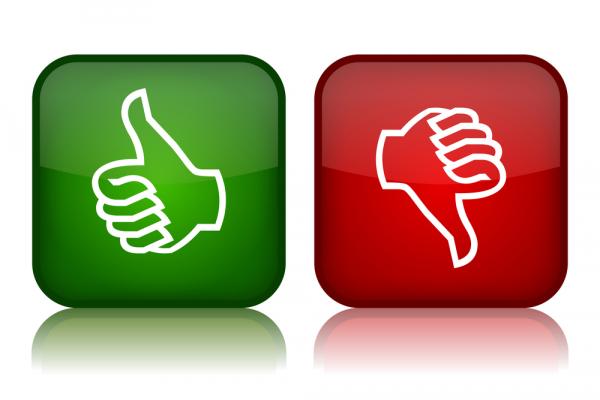Medical Practices & The Disadvantages of Social Media
 Social media has become a useful platform for attracting leads, but it still has its disadvantages. The most obvious disadvantage is that negative comments can be seen by other people, while another major drawback is that it is often unedited and can be hard to read.
Social media has become a useful platform for attracting leads, but it still has its disadvantages. The most obvious disadvantage is that negative comments can be seen by other people, while another major drawback is that it is often unedited and can be hard to read.
Here are ways that medical businesses can deal with the disadvantages of social media.
How To Treat Negativity
Negativity on social media can get out of control when there's no moderator. All it takes is minor disagreement to trigger negative emotions. The best way to deal with negativity is to diffuse it, either with positive or neutral comments. The administrator can also delete negative comments, while letting other participants know to keep comments positive.
Time Consuming Prospects
Managing time wisely is an important aspect of using social media. The person answering questions must prioritize responses. It's important to remember that just because someone is spending time on social media doesn't necessarily mean they are a qualified lead. They may be gathering information for various reasons other than deciding to use your business. Competitors may even be doing research on your business.
The best way to organize social media profiles is with marketing software. You can then score your leads with whatever method is appropriate for your operation, when it's based on points or a grading system. You should always be aware that one of the key disadvantages of social media is that it can waste valuable time. It can be managed with time limits and prioritizing certain prospects.
Responding Quickly
Social media has become like customer service for some companies that are able to employ social media personnel around the clock. Studies show that the faster you respond to customer inquiries on social media or email, the greater the opportunity for conversions.

Answering questions within a few minutes, as opposed to a few hours, will more likely lead to an appointment. Another one of the major disadvantages of social media, is that people no longer have as much patience as they did last century for awaiting a response.
Lost Messages And Misinformation
One of the most annoying aspects of social media is miscommunication. Due to the rapid-fire exchanges on social media, it's common for people to misunderstand each other from reading text too quickly. Sometimes misunderstandings arise from false assumptions or unclear descriptions. In that sense, social media can add problems that slow down business. The key is to prioritize how time is spent answering questions.
False rumors can spread quickly through social media and sometimes it takes days for people to learn the truth. It often starts when a trusted friend posts information from a fake news site or a blog with incorrect information. There is a tendency for people to "like" what they already favor without even reading the content they endorse. So social media opens the floodgates to information from various unscreened sources that could be subject to reporting misleading stories.
Missed Opportunities
Since part of the appeal of social media is real time interaction, if you are not on it 24/7, you can potentially face many missed opportunities. People like getting quick answers to their questions, otherwise they can click to a competing website or social media profile. It can still be helpful to answer questions late and nurture leads for the future.
Replacing Face To Face Meetings
The medical professional must guard against the disadvantages of social media replacing hospital visits. While it can help reduce non-emergencies, it should not be regarded as the self-help solution for emergencies or regular checkups. The goal of a medical facility using social media should be to schedule appointments, where the full of scope of medical help is discussed.
Use of social media by doctors jumped from 41% in 2010 to 90% in 2011, according to the National Library of Medicine. A growing number of patients use social media as their immediate way of dealing with health conditions. Social media has also become a part of medical team collaboration when consulting each other.
A top concern of a medical facility that uses social media is how privacy settings are determined for staff members and the public. Health professionals must practice in accordance with the Health Insurance Portability and Accountability Act (HIPAA), in which social media might be considered high risk among patients.
While social media can be an effective tool to keep patients mentally active, the pros and cons must be weighed on multiple levels. Your social media strategy should be based on producing the content your audience wants to read as well as putting in place some form of customer service team. A effective customer service team is one way to alleviate one of the disadvantages of social media.

